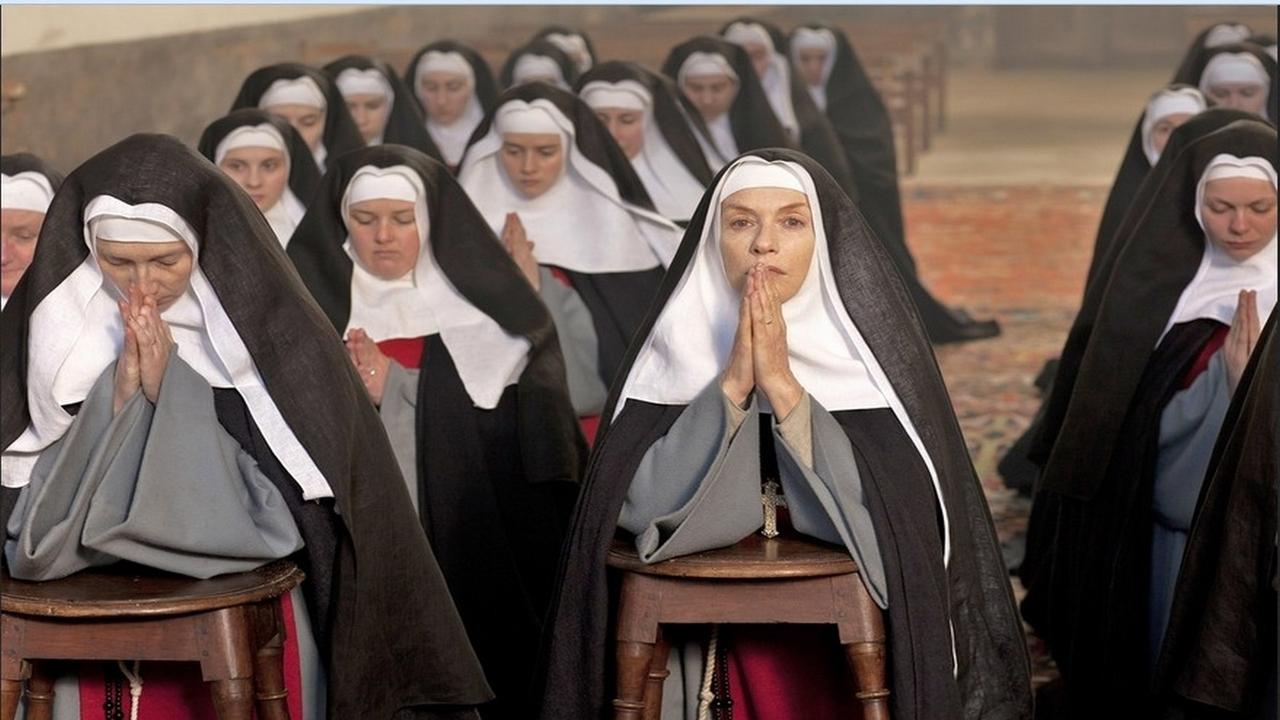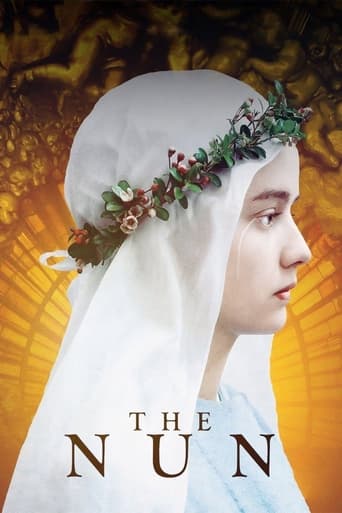UnowPriceless
hyped garbage
Yash Wade
Close shines in drama with strong language, adult themes.
Beulah Bram
A film of deceptively outspoken contemporary relevance, this is cinema at its most alert, alarming and alive.
Scarlet
The film never slows down or bores, plunging from one harrowing sequence to the next.
gradyharp
Denis Diderot wrote La Religieuse (The Nun) in 1780 and the power in this story remains intact in this screen adaptation by Guillaume Nicloux (who also directs) and Jérôme Beaujour. Diderot was a radical freethinker, rejecting conventional dogma and associated himself with some of the most enlightened philosophers of his age. His books were burned and Diderot himself served three months in Vincennes prison in retaliation for his attacks on the conventional morality of the day. Some of his books were considered so radical that they were banned until after his death.The story takes place in France, in the 1760s. Born to a bourgeois family, Suzanne (Pauline Etienne) is a beautiful young girl with a natural talent for music. Despite her faith, she is dismayed when her parents send her off to a convent, expecting her to become a nun. Suzanne first resists the rules of the convent, but soon finds out that she is an illegitimate child, leaving her no other option than to pronounce her vows and suffer the consequences of her mother's sin. She soon wants to escape the religious path and is trying to revoke her vows when the Mother Superior, who had brought her comfort and solace, dies. Her successor, Sister Christine (Louise Bourgoin), turns out to be a sadistic and cruel Mother Superior, inflicting the worst forms of humiliation upon Suzanne, such as depriving her of food and clothing. Suzanne is finally transferred to another convent, where she discovers another kind of Mother Superior (Isabelle Huppert), who develops an inappropriate affectionate bond with her. The story is one of a woman trying to resist imposed religious values, revealing the dehumanizing effect of cloistered life.Pauline Etienne is radiant as Suzanne and as always Isabelle Huppert delivers a riveting performance. The costumes by Anaïs Romand are especially fine as is the musical score by Max Richter. This is a superb film on every level.
kosmasp
If it were up to her that is. Bad jokes aside, this is based on a novel that has already seen an incarnation (no pun intended) in movie that was made in the sixties. I can neither relate to that movie or the book, since I haven't read or watched those. But I can say that I can relate to our main character here. And who would not be able to? Being forced to do something you don't want to, is something everyone has had to go through in different variations.I do wonder what the church is saying about this, although it's obvious that the blame goes to single persons instead of everyone. The structure is pretty neat, with someone reading what happened and us being thrown into that mix. Great sets and costumes and a very well acted (underplayed) main role. Sometimes the devil is in the detail ...
shawneofthedead
Imagine being sent to a convent against your will. Imagine taking a religious vow in which you don't personally have faith. Imagine discovering that the treacherous currents of guilt, power, control and sex remain every bit as relevant within a nunnery as outside of it. Such is the tragic predicament in which the film's titular nun finds herself in this handsomely-shot - if not entirely well-executed - adaptation of 18th-century French philosopher Denis Diderot's controversial novel.With the family coffers drained for the dowries of her two elder sisters, Suzanne Simonin (Pauline Etienne) is sent to a convent. She has no desire to be there, and makes that known to the kindly abbess who takes care of her. When her benefactress mysteriously dies, convent life rapidly becomes all the more complicated. Suzanne finds herself treading far murkier waters, her wellbeing completely at the mercy of the cold, unforgiving Supérieure Christine (Louise Bourgoin) and the overly attentive Supérieure Saint-Eutrope (Isabelle Huppert).For much of its running time, The Nun explores Suzanne's plight with a steely depth and determination that's fascinating to watch. There's an icy tension to her confrontations with Supérieure Christine: these are rife with politics, power and drama, as the flock of nuns dutifully turn against Suzanne with the capricious menace of school-children on a playground. Etienne is wonderful throughout, playing Suzanne's rebellious spirit as convincingly as she does her moments of surrender and despair.It's when the usually magnificent Huppert appears on the scene that The Nun stumbles badly. Huppert's character is drawn in broad, garish strokes, with none of the depth, complexity and subtlety of which she is so very capable. Almost laughably, Supérieure Saint-Eutrope appears to be little more than a fickle, amorous gargoyle leeching on the younger nuns in her charge.Perhaps that's partly the point - it could be a tip of the hat to the fact that Diderot's novel started out as an elaborate practical joke on a friend, rather than a genuinely impassioned treatise on the state of the church. Even so, the shift in tone from considered to campy is abrupt and, ultimately, too much to bear.
writers_reign
By pure (I'm guessing) coincidence, this film is playing a limited engagement at the same time as Philomena is on blanket release: both have Oscar-worthy performances from the leading actress and both portray the Catholic Church as Draconian, a view with which I am in total agreement. If the name Isabelle Huppert brings people into screenings of The Nun (there were seven in the audience at the performance I attended) then this will be a good thing. Huppert appears only in the last couple of reels but she is prominent from then on but it is the young lead actress, Pauline Etienne, who is in virtually every scene and dominates the film whilst hardly raising her voice, let alone her eyes. Apparently there was an earlier version (it's an adaptation of a well- known novel by Diderot) in 1966, but it would have had to go some to equal let alone eclipse this version. I'll confess freely that I've nodded off in films paced at four or five times the speed of this but I remained awake for every frame. It's a pretty harrowing tale whichever way you look at it and the setting - France in the 1760s - doesn't help. Our heroine, the youngest of three sisters, enjoying a bourgeois existence, is sent, much against her will, to a convent, ostensibly for s set period then, nearing the end of her tenure, is told that her parents wish her to stay and actually take the veil. The reason given is that underwriting the weddings of the two elder sisters has depleted the family funds, not the most convincing argument I've ever heard, but there you go. Terribly unhappy and totally unsuited for the life, she refuses to go through with the ceremony and finds a sympathetic ear in the Mother Superior, but, wouldn't you know, she is replaced by a martinet who soon has our heroine scrubbing floors, tied up, denied food and a chamber pot, all, of course, in the name of our Lord. A note smuggled out brings a result of sorts and the second Mother Superior is replaced and our heroine transferred to another convent under the auspices of Isabelle Huppert, who is immediately drawn to the girl and is soon begging for kisses and creeping into her cell in the small hours. Boy, that's some church you got there, Lord.

